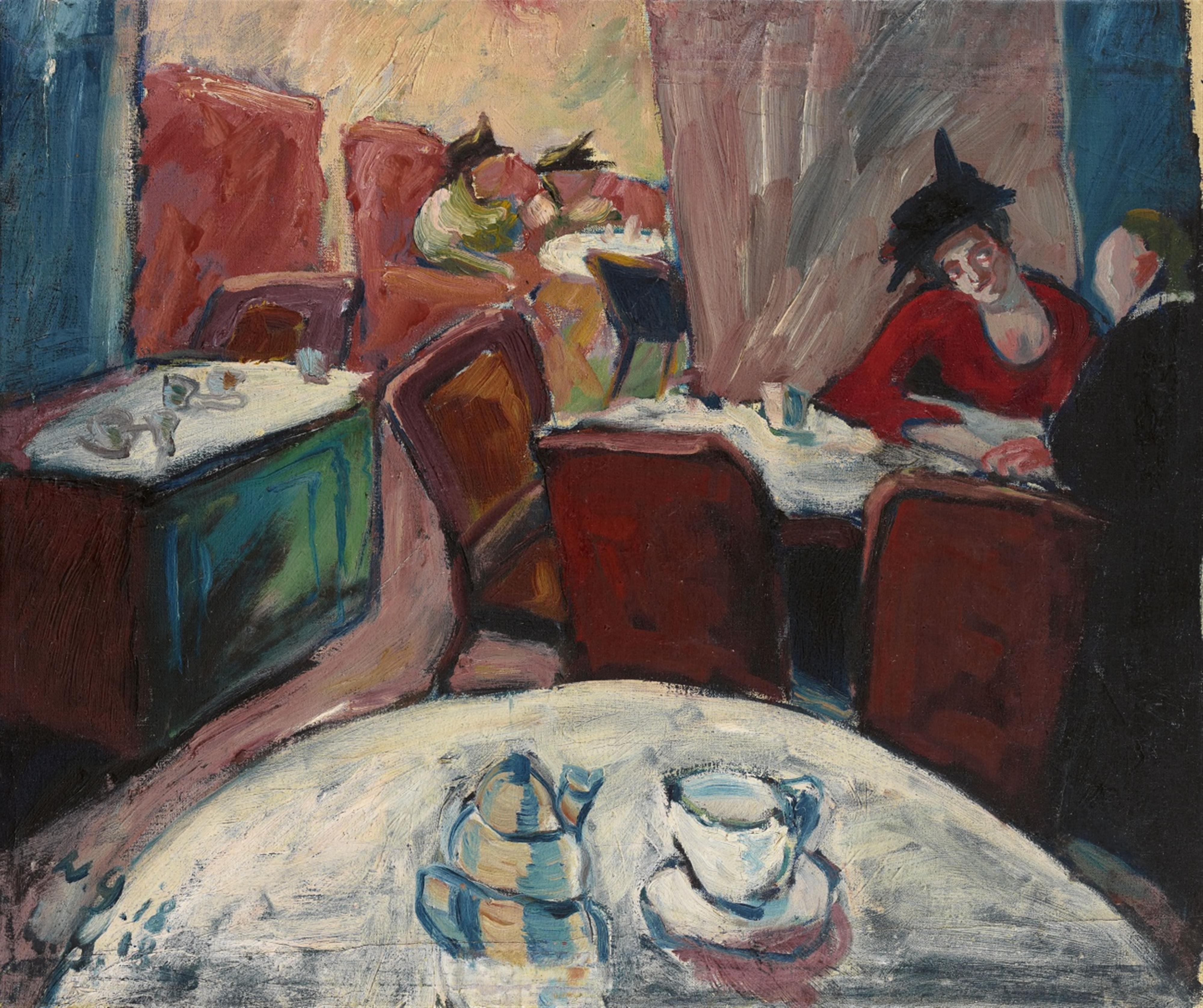Walter Gramatté
Café
1918
Oil on canvas 40.1 x 48.2 cm Framed. Monogrammed and dated 'W.G. 18.' twice in blue grey lower left. - Some old retouches in the margins, mostly in upper margin; small losses of colour in right half of picture professionally stabilised and retouched in places.
Born in January of 1897, like many members of his generation Walter Gramatté went to Germany's Western Front as a volunteer in 1914. At that time, at the age of just 17, he was still at the very beginning of his artistic career, which - like his entire life - would be shaped by the fundamental experience of the war. In 1927 in the journal “Die Horen”, Gramatté's friend the writer Hermann Kasack wrote: “When Gramatté began, war reigned. That was not without significance for the artistic and human awakening of the self. At the beginning of his life stands not a marvelling at the world, but outrage, horror, fear. This burdened and defined the underlying tone of the period.” (Die Horen, Monatshefte für Kunst und Dichtung, no. VI, Berlin 1927/1928). It is no coincidence that Gramatté's early drawings from the years 1914 to 1916 are closely based on the work of Max Beckmann: he admired him as a painter early on, and he lived and worked in his studio home in Berlin-Hermsdorf for a period beginning in 1921.
Wounded and close to a complete breakdown, Gramatté was provisionally released from military duty in 1917, and he moved into his first studio, located in Berlin-Wilmersdorf. This quickly developed into a meeting place for young authors, painters and journalists. Erich Heckel, who soon moved into the immediate neighbourhood with Sidi, became a close and father-like friend of the artist. Gramatté's artistic development in this period took place under the impression made by his involvement in the war, and it is no surprise that he repeatedly delves into the conditions of human existence in his portraits and self-portraits, but also in coffee-house scenes full of melancholy and tragedy. With its pallid, mask-like figures in a half-empty room, our painting strikingly demonstrates how Gramatté was able to capture the shadows of his time on canvas with an expressive virtuosity.
Catalogue Raisonné
Negendanck 48; Eckhardt B8
Provenance
Formerly Ferdinand Eckhardt; Private collection, North Rhine-Westphalia
Exhibitions
Munich 1989 (Staatsgalerie moderne Kunst), Walter Gramatté 1897 - 1929. Gemälde und Arbeiten auf Papier, cat. no. 27; Düsseldorf 1992 (Galerie Remmert und Barth), Walter Gramatté 1897 - 1929. Gemälde, Aquarelle, Druckgraphiken, cat. no. 4 with colour illus.

